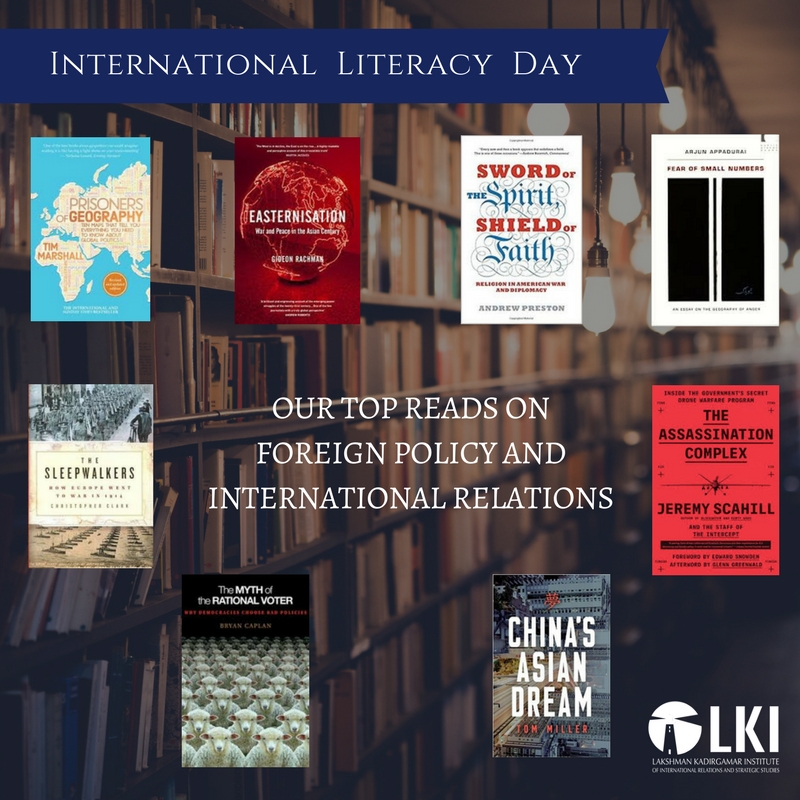September 8, 2017 Reading Time: 2 minutes
 Reading Time: 2 min read
Reading Time: 2 min readImage Credit – Unsplash
To celebrate International Literacy Day today, researchers at the Lakshman Kadirgamar Institute (LKI) share their favourite reads on international relations and foreign policy.
Amjad Hamza
The Sleepwalkers: How Europe Went to War in 1914, by Christopher Clark, challenges common interpretations about the origins of the Great War. It uses new research to create a fascinating narrative of the events that led to World War I.
Anishka De Zylva
Tom Miller’s China’s Asian Dream: Empire Building Along the New Silk Road attempts to answer one of the most relevant questions of our time: “What do China’s national aspirations mean for the future of Asia, and the rest of the world?” It is, therefore, an ideal book for understanding the internal drivers and implications of China’s foreign policy for Sri Lanka.
Barana Waidyatilake
Andrew Preston’s Sword of the Spirit, Shield of Faith: Religion in American War and Diplomacy offers keen insights into the deep yet subtle influence of religion on US foreign policy, and explains how currents of militant and pacifist Christianity have respectively shaped the jingoism and idealism of US foreign policy.
Dinuka Malith
Bryan Caplan’s The Myth of the Rational Voter: Why Democracies Choose Bad Policies offers a different and engaging take on why voters support questionable economic outcomes and policies, rather than more sound ones.
Dr. Dinusha Panditaratne
Tim Marshall’s Prisoners of Geography is a forceful account of how geography affects international relations. The author explains how geographical factors have influenced the leadership of key regions and major powers. An interesting side note is that Sri Lanka is mentioned only in the chapter on China.
Dr. Ganeshan Wignaraja
Gideon Rachman’s Easternization: Asia’s Rise and America’s Decline From Obama to Trump and Beyond is a must-read that maps the shift of gravity of the world economy from the West to Asia, and analyses policy implications.
Malinda Meegoda
The Assassination Complex: Inside the Government’s Secret Drone Warfare Program, by Jeremy Scahill and the staff of The Intercept, is a provocative and exhaustively researched account of the growth of America’s drone-warfare program. It provides an inside view of the decision-making process when terrorists are targeted, and the technology of drones used to achieve US military objectives.
Myra Sivaloganathan
Fear of Small Numbers: An Essay on the Geography of Anger, by Arjun Appadurai, explores why violent extremism and ethnocide have proliferated in an era of globalisation. Appadurai argues that globalisation makes problematic notions of nationhood and sentiments of belonging, by blurring the boundaries between the Self and the Other.
*The views expressed in this post are the researchers’ own. They are not the institutional views of the LKI and do not necessarily represent or reflect the position of any other institution or individuals with which the researchers are affiliated.